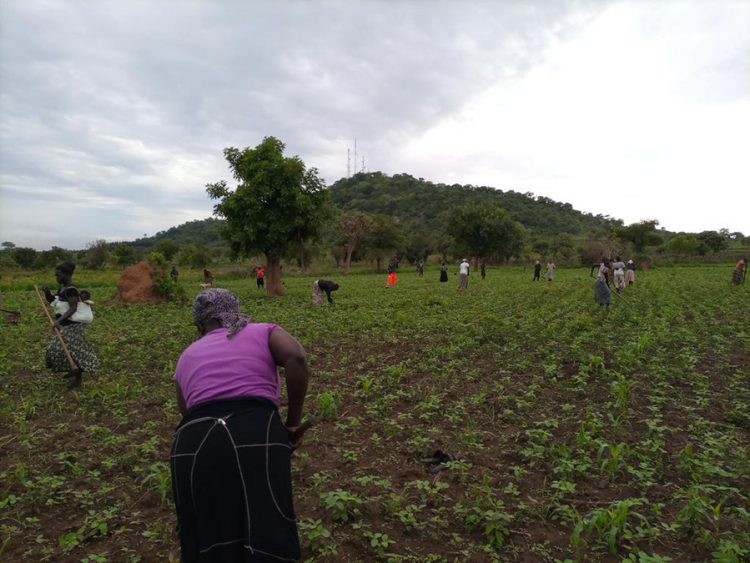Publications
Omoro: Mothers embrace group farming to fight malnutrition
While Uganda is considered as the food basket of East Africa, some families are still going hungry, many children are malnourished, and diet-related non-communicable diseases are on the rise.
For some children in Omoro district, nutritious foods are not accessible to their families while for others, a lack of access to essential health services lead to illnesses that prevent children from absorbing food nutrients.
As such mothers in Omoro district have resorted to group farming to fight malnutrition that is common among children and pregnant women in the district.
According to health Officials from Lacor hospital, malnutrition in the district is a key health challenge but through these groups, mothers now grow nutritious foods such as vegetables, beans, millet, soya bean, sorghum among others to improve the health condition in their homes.
With the support of Mother and Child Health Lacor and South Sudan (MOCHELASS) in partnership with Lacor hospital, communities in Gulu, Amuru and Omoro districts have reached a milestone in fighting poor child spacing, adolescence pregnancy and malnutrition in the region.
Miriam Akello, from Hima village, Lakwana Sub-county in Omoro district, is among those whose families have been battling with malnutrition for over 5 years.
Akello said crop growing was the only option to fight malnutrition and other child health related diseases in their families.
"We were lacking mineral foods in the body. Our children were dying, pregnant women were facing a lot of challenges but now we have got some training through capacity building. We were taught how we can fight malnutrition in our homes through this kind of initiative," she said.
Janet Arach, a mother of four from Opit village in Omoro district said that they face a serious challenge of poor feeding in their area, something that could not be ignored.
"We didn't know that we can prevent some of these child health related illnesses. We were taken to Lacor hospital and trained on how we can fight malnutrition in our families," she said.
Morris Ogwang,the senior clinical officer in charge of Lacor Health Centre III Opit in Omoro district, told The Nile Post that setting up kitchen gardens in homesteads have helped to reduce the cases of malnutrition in the district.
"We really had this challenge of malnutrition. At least on average we were getting up to about 30 children who are under five with malnutrition. One of our interventions was to empower community sensitisation in relation to malnutrition," Ogwang said.
He said children suffering from malnutrition may not grow tall, their brains will be incapable of performing tasks of their age and they stand higher chances of dying while young.
Emmanuel Ochola, epidemiologist from St Mary's hospital Lacor who doubles as Principal investigator in Uganda for Mothers and Child Health Lacor and South Sudan project, attributed the increasing level of malnutrition in the region to post conflict in the area.
"We noted the problem of child spacing, we noted malaria, we noted HIV/AIDS, we noted diarrhoea diseases which were still killing many children and we also noted that adolescent pregnancy in certain locations was a terrible challenge in the region. Our approach as the hospital was to let the group take the lead," he said.
Agnes Kirabo, the executive director of Food Rights Alliance, a coalition of civil social organisations working in the field of sustainable agriculture and food security said there is a double burden of malnutrition in Uganda.
She said the children of the rich are overweight and contract non communicable diseases while those of the poor are underweight and stunted.
Dr Joyce Moriku Kaducu, the minister of state for Primary Healthcare, said we need to put a lot of emphasis on the food which is produced for the children.
"The amount of food, the quantity and the quality that is needed for the body to build and to grow matters a lot in feeding. Stunted growth is still a problem in the country as opposed to underweight. We are talking about age for height, it is not an overnight issue to deal with," she said.
Research conducted by Integrated Food Security classification in August 2020, indicates that 23% of Ugandans face high levels of acute food insecurity.
This article was first published on https://nilepost.co.ug/2021/05/20/omoro-mothers-embrace-group-farming-to-fight-malnutrition/



